SK Innovation showcases battery and plastics recycling technologies at CES
SK Innovation showcased various products and technologies in the field of “green innovation” at the US technology show. Visitors were able to see recycled batteries, plastic waste recycling and other advanced materials. The Energy Division of South Korea’s SK Group is one of eight divisions represented at the Consumer Electronics Show (CES). CES is a major international consumer electronics trade show that took place in Las Vegas, USA, from 5 to 8 January. E-mobility machinery, technology and equipment often require KC Safety certification to be approved for import and distribution in Korea.
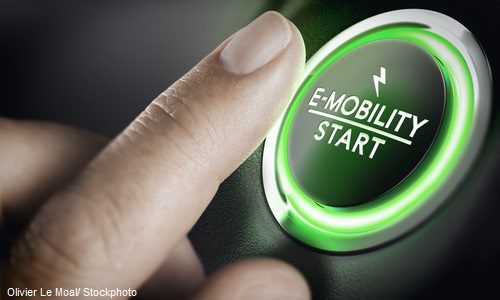
The battery manufacturer SK On presented a fast-charging battery with a high nickel content for EVs under the official name E556. The SF (Super Fast) battery has a nickel content of 83 percent and enables a range of 400 kilometres with one charge. It is also said to charge to 80 per cent in just 18 minutes instead of the current average industry standard of 20 to 30 minutes. The SF556 battery is installed in the Hyundai Ioniq 5 and Kia EV6 EVs. Solid Power, a solid-state battery developer based in the US state of Colorado, will work with SK Innovation on this battery in the future.
SK IE Technology Co (SKIET), a manufacturer of electronic components, showcased a flexible display that can be used in place of glass for bendable, foldable or roll-up displays. SKIET also showed its lithium-ion separator, an important component in EV batteries. The chemical division SK Geocentric will soon launch a so-called UD tape, which is used in the automotive industry. It consists of a highly functional composite material made of thermoplastic resin and fibres. SK Geocentric also said it was continuing plans for large-scale plastics recycling facilities and building a plant for the further processing of pyrolysis oil.
KCs certification was introduced in South Korea to ensure basic safety in the design and manufacture of hazardous machinery and protective equipment in hazardous workplaces in Korea. The aim is to protect the health and safety of workers by preventing accidents. We offer certification services for all product areas, including KC certification for consumer products and especially electronics, KC-EMC certification for electronic products and KCs certification for machinery, as well as KCs for explosion safety products. We are at your disposal for all questions regarding Korea certifications.
Feel free to contact us any time if you need assistance or have any questions regarding Korea certifications!
Tel. Europe: +49-69-271 37 69 261 Tel. US: +1 773 654-2673
Email: info@korea-certification.com
For more information you can download our free brochure “Korea Certification Made Easy – The Booklet“.
Rising car sales figures in December 2022
Despite the ongoing semiconductor scarcity, import vehicle sales in South Korea increased last month by 24 percent compared to the same month last year. According to a statement from the Korea Automobile Importers & Distributors Association (KAIDA), there were over 29,000 newly registered foreign automobiles this month, up from almost 24,000 units a year earlier. The E 250 and E 350 4MATIC sedans from Mercedes-Benz and the 520 sedan from BMW were among most popular models last month. A lot of equipment and machinery used in the automotive industry needs KC certification in order to be approved for the Korean market.
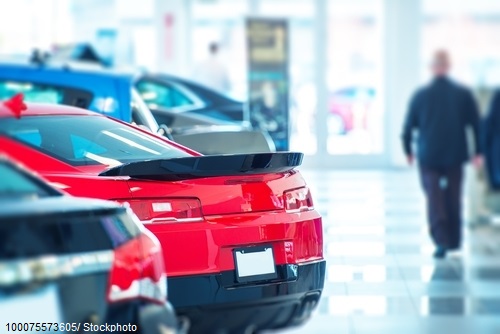
According to KAIDA, German automobiles made up over 75% of all imported vehicles sold in Korea last month. Volkswagen Group Korea, BMW Group Korea, and Mercedes-Benz Korea together sold over 22,000 vehicles in December, up from around 16,500 the previous year.
The percentage of imported brands in the Korean passenger car market increased from around 15 percent to 20 percent in November. According to KAIDA, their market share for December has not yet been disclosed.
According to the report, the number of imported cars registered overall in 2022 increased to over 280,000 vehicles from around 276,000units during the same month in 2017.
Feel free to contact us any time if you need assistance or have any questions regarding Korean certifications like KC, KC EMC, KCs, KCs for explosion safety products or KGS factory registration.
Tel. Europe: +49-69-271 37 69 261 Tel. US: +1 773 654-2673
Email: info@korea-certification.com
For more information you can download our free brochure “Korea Certification Made Easy – The Booklet“.
Hydrolux develops new storage method for hydrogen
The South Korean company Hydrolux recently unveiled the development of a new storage method for hydrogen with high safety and efficiency. The so-called Hydrolux alloy is a storage of the gas in a solid, not as usual under high pressure or as a liquefied gas. The company emphasises that it is now possible to store and retrieve hydrogen at room temperature, while at the same time increasing the amount of stored gas or decreasing its volume. The maximum storage capacity of the new alloy is 3.3 per cent of the total weight of a body made of the new material. Previous alloys only achieve around 1.8 per cent. This means that about twice the amount of hydrogen can be stored. Storage methods of this type usually require KGS registration to be approved in Korea.
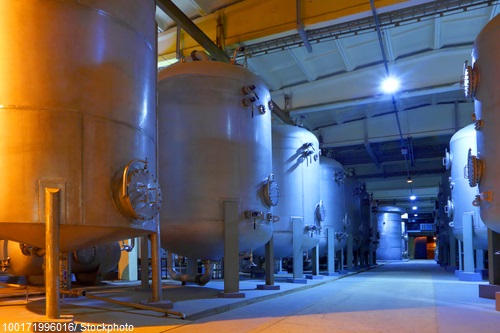
Due to the low pressure during filling, a compressor can also be omitted, which simplifies storage and transport. Compared to a 45 Mpa pressure vessel trailer currently under development, the novel method is superior in terms of storage capacity, weight and volume. Hydrolux was established in September 2021 and was financially supported by the POSCO Group after completing a demonstration model. In addition, the government selected Hydrolux as a start-up under the “TIPS” (Tech Incubator Program for Start-ups) project. Hydrolux plans to build a production plant in the current year and then start full-scale production.
The Korea Gas Safety Corporation (KGS) is a government organisation under the Ministry of Trade, Industry and Energy (MOTIE). Gas safety regulations in Korea began in 1974 with the passage of the Compressed Gas Control Act. In 1995, the Institute of High Pressure Gas Safety was established, and after several restructurings, the Korea Gas Safety Corporation (KGS) was established in 2001. One year later, KGS was affiliated to MOTIE. KGS was accredited as a Korean Notified Body in 2006 and was also accredited to conduct KCs certification and testing of explosion-proof electrical equipment.
We offer certification services for all product areas, including KC certification for consumer products and especially electronics, KC EMC certification for electronic products and KCs certification for machinery, as well as KCs for explosion-proof products. We are at your disposal for all questions regarding Korea certifications.
Feel free to contact us any time if you need assistance or have any questions regarding Korean certifications like KC, KC EMC, KCs, KCs for explosion safety products or KGS factory registration.
Tel. Europe: +49-69-271 37 69 261 Tel. US: +1 773 654-2673
Email: info@korea-certification.com
For more information you can download our free brochure “Korea Certification Made Easy – The Booklet“.
Samsung Electronics plans factories without workers due to labour shortage
Samsung Electronics Co, the world’s largest memory chip maker, is planning factories with no or only a few workers in the future. Other South Korean manufacturers are considering similar moves due to the country’s declining population and the resulting shortage of staff. Samsung therefore set up a working group to convert the most important factories to unmanned factories by 2030. According to the plan, all production processes will use automated procedures and machines, industry insiders said. A Samsung spokesman said a significant decline in available labour is expected over the next decade. Components and equipment needed to manufacture automated robot technology for industry generally require KCs certification to be imported and used in Korea.
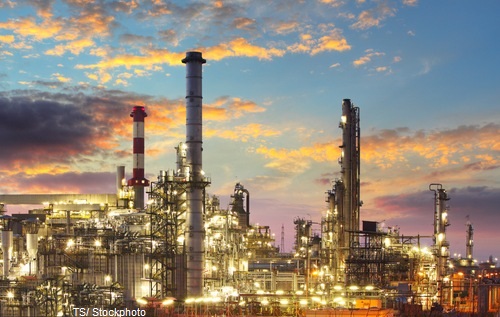
The population of South Korea, the fourth-largest economy in Asia, fell 0.2 per cent to 51.7 million. According to industry experts, converting existing factories to fewer employees is not particularly difficult. The development of robot technology and the integration of sensors and smart learning make automated factories possible. As a result, the global robotics industry is expected to double in market value from last year’s US$14.1 billion to US$28.9 billion by 2026.
KCs certification was introduced in South Korea to ensure basic safety in the design and manufacture of hazardous machinery and protective equipment in hazardous workplaces in Korea. The aim is to protect the health and safety of workers by preventing accidents. We offer certification services for all product areas, including KC certification for consumer products and especially electronics, KC-EMV certification for electronic products and KCs certification for machinery, as well as KCs for explosion-proof products. We are at your disposal for all questions regarding Korea certifications.
Feel free to contact us any time if you need assistance or have any questions regarding Korean certifications like KC, KC EMC, KCs, KCs for explosion safety products or KGS factory registration.
Tel. Europe: +49-69-271 37 69 261 Tel. US: +1 773 654-2673
Email: info@korea-certification.com
For more information you can download our free brochure “Korea Certification Made Easy – The Booklet“.
South Korea tests hydrogen as domestic fuel for heating and cooking
The Ministry of Trade, Industry and Energy (MOTIE) released plans to test blending hydrogen into the gas supply for residential buildings. This step comes as part of the plan to become a hydrogen economy and save carbon dioxide. Blending 20 per cent hydrogen into the existing gas supply could save CO₂ emissions of 3.5 million tonnes per year. To ensure the safety of the gas pipelines, the ministry will begin test runs this year and check the usability of existing pipelines and valves. By 2026, legal standards for gas companies to blend hydrogen could then come into effect. Products covered by gas safety regulations in Korea often require KGS approval to be approved for sale and operation in Korea.
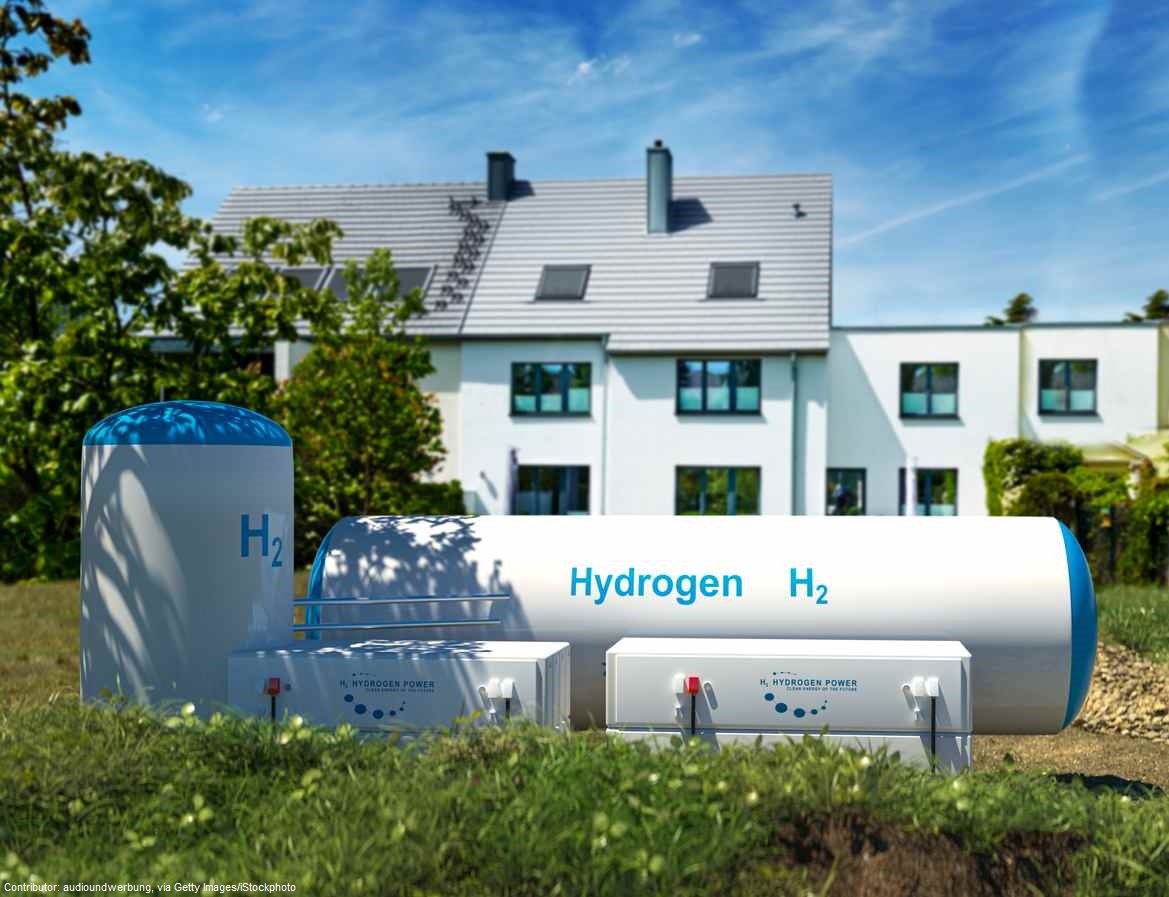
In total, the gas mixture would flow through 50,000 kilometres of pipelines within South Korean cities. A first trial will take place in the second quarter of 2023 at Korea Gas Corp’s LNG plant in Pyeongtaek-si. The government plans to allocate US$23.4 million in funding for the project’s development and testing by 2025. South Korea consumes about 40 million tonnes of natural gas per year. According to government estimates, blending ten per cent hydrogen could save 1.29 million tonnes of natural gas and 3.55 million tonnes of carbon dioxide annually. Other countries such as the USA, Great Britain and Germany are conducting similar trials. Already since the end of 2020, the US Energy Department has launched the “HyBlend” research initiative, where the hydrogen-natural gas mix is being studied in more detail.
Feel free to contact us any time if you need assistance or have any questions regarding Korean certifications like KC, KC EMC, KCs, KCs for explosion safety products or KGS factory registration.
Tel. Europe: +49-69-271 37 69 261 Tel. US: +1 773 654-2673
Email: info@korea-certification.com
Urgent questions?Please do not hesitate to contact us via chat. You will find the chat window at the bottom right of each page (if this is not visible, please check your browser settings).
For more information you can download our free brochure “Korea Certification Made Easy – The Booklet“.
Korean Authorities Closed During New Year
Several Korean authorities and certification institutions will be closed for Christmas and New Year Holidays.
The holidays will be on December 25, 2022 and on January 01, 2023 respectively. This year, these days fall on Sundays, so the authorities will resume their work from 02 January 2023 without delay.
In Korea, New Year’s Eve is celebrated more quietly in comparison to the Korean New Year celebrations.
The Korean New Year’s Day which is calculated according to the Chinese lunar calendar will start in end of January for 2023. We will inform you about the exact days when the authorities will close for the Spring Festival when we get the official notice.
Due to the closing delays in the certification process may occur.

MPR International GmbH will continue to support you in your certification processes. If you would like to have products checked for KC-, KC EMC-, KCs-, KEMCO or other certifications, you can call or email us any time.
Please do not hesitate to contact us for further details and consultation. You can contact us via e-mail, or call us (UK: +44 2071931135, Rest of Europe: +49 69 2713769259, US: +1 773 654-2673).
If you have any questions you can also use our chat-window in the bottom right. (Please check your browser settings if you can’t see the window)
MPR International GmbH wishes you a succesfull New Year 2023!
Lotte and Hyundai Motor Group to work together to expand EV charging infrastructure in the future
The two South Korean corporations Hyundai Motor Group and Lotte Group will work together in the future to expand and develop the charging infrastructure for EVs. Company spokespersons made the announcement at the beginning of November. The alliance to strengthen the e-mobility sector was launched on the initiative of chairmen Chung Euisun (Hyundai) and Shing Dong-bin (Lotte). To this end, the companies signed an agreement to establish the “Electric Vehicle Super-Speed Charging Infrastructure Special Purpose Company” in November. The financial company KB Asset Management is participating in the project. Another joint venture, not yet named, consisting of the three companies will have an investment volume of around 211 million US dollars, according to local media reports. Equipment and components used in the production of charging elements for e-cars require KC certification in many cases.
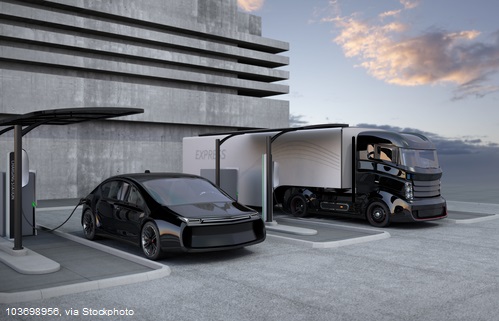
The business model of the joint venture is to lease EV fast chargers to companies in order to keep the investment costs low for the operators. A total of 5,000 fast-charging stations are to be built in the country’s largest cities by 2025. The charging stations will be installed primarily in the distribution centres of the Lotte Group as well as Hyundai’s salesrooms and workshops. The cooperation between Hyundai and Lotte is seen as a major step towards expanding the EV charging infrastructure in South Korea. According to the Ministry of Environment, there are currently around 150,000 charging stations compared to 350,000 registered EVs. While experts believe that Hyundai and Lotte will take the lead in the increasingly competitive market for charging stations with the planned investment, other companies such as SK, LG, GS, Hanwha and LS are also poised to enter this business. SK Group, for example, acquired charging station manufacturer Signet V last year, while LG Group and GS Group also jointly acquired AppleMango, a charging station manufacturer.
Certifications for the Korean market are a complex hurdle and difficult to navigate due to different authorities and certification systems. With over 15 years of experience in the certification business, MPR International GmbH is your best point of contact for competent service when it comes to exporting to Korea. For example, KC Safety is relevant for electronics and household products, which are mostly intended for consumers, as well as products for children and babies.
Feel free to contact us any time if you need assistance or have any questions regarding Korean certifications like KC, KC EMC, KCs, KCs for explosion safety products or KGS factory registration.
Tel. Europe: +49-69-271 37 69 261 Tel. US: +1 773 654-2673
Email: info@korea-certification.com
Urgent questions?Please do not hesitate to contact us via chat. You will find the chat window at the bottom right of each page (if this is not visible, please check your browser settings).
For more information you can download our free brochure “Korea Certification Made Easy – The Booklet“.
Hyundai Motor expands power supply with solar cells at Ulsan plant
Leading South Korean automaker Hyundai Motor Co. is building more solar cell power supply facilities at its main Ulsan plant. With this, the company plans to move towards sustainable and CO₂-neutral manufacturing. Construction work began in November on additional solar panels to expand the power generation capacity from the current 9 megawatts to 15 megawatts, with commissioning planned for September 2023. After that, the carmaker could consume up to 20,000 MWh of electrical energy from solar power at its main Ulsan plant annually. This figure is equivalent to about 1.5 per cent of the total annual electricity consumption of 1.29 million MWh supplied by the state-owned Korea Electric Power Corp. Equipment and components from this sector usually require KC certification to be approved for import and operation in Korea.
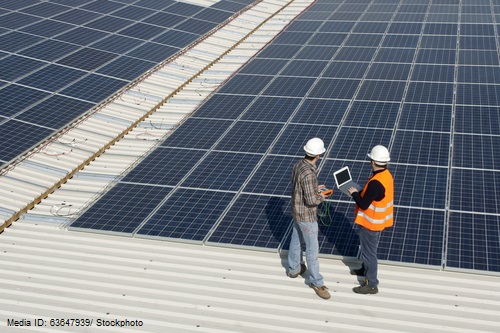
Hyundai is also considering expanding its 10-megawatt solar plant at the Asan factory and increasing photovoltaic power generation at its research centres to 3 megawatts from the current 562 kilowatts. New plants, including an EV production facility under construction in the US state of Georgia, will be equipped with solar cells as standard. Hyundai plans to build its own sustainable power plants by 2045 as part of its CO₂ neutrality. This will affect all Hyundai Group companies such as Kia and Hyundai Mobis.
Leading car manufacturers around the world are striving to build their own plants to supply electricity with sustainable energy. Especially in view of the Russian invasion of Ukraine and climate change, a self-sufficient energy supply is important to many car companies. For example, the German car manufacturer Mercedes-Benz is planning to build a wind power plant on its test track by 2025. In addition, it is investing millions of euros in solar panels as part of its plan to obtain 70 % of its energy from renewable sources by 2030. Another corporation, General Motors Co, also set up its own division, “GM Energy”, to generate and sell energy.
KCs certification was introduced in South Korea to ensure basic safety in the design and manufacture of hazardous machinery and protective equipment in hazardous workplaces in Korea. The aim is to protect the health and safety of workers by preventing accidents. We offer certification services for all product areas, including KC certification for consumer products and especially electronics, KC-EMC certification for electronic products and KCs certification for machinery, KCs for explosion-proof products and KGS factory registration. We are at your disposal for all questions regarding Korea certifications.
Tel. Europe: +49-69-271 37 69 261 Tel. US: +1 773 654-2673
Email: info@korea-certification.com
Urgent questions?Please do not hesitate to contact us via chat. You will find the chat window at the bottom right of each page (if this is not visible, please check your browser settings).
For more information you can download our free brochure “Korea Certification Made Easy – The Booklet“.
South Korea plans to surpass China’s EV battery industry
The relevant Ministry of Trade, Industry and Energy on Nov. 1 released a plan to increase South Korea’s share of the global rechargeable battery market to at least 40 percent by 2030. As of June this year, South Korea’s market share was 25.8 percent, with China and Japan securing 56.4 and 9.6 percent, respectively. According to the plan, the government wants to establish a public-private partnership for the procurement of key battery raw materials such as minerals. To this end, the Korea Trade Insurance Corporation and the Export-Import Bank of Korea are providing the equivalent of $2.28 billion in financial support over the coming years. Battery production may involve, among other things, components and equipment that require KC certification to be used in the Korean market.
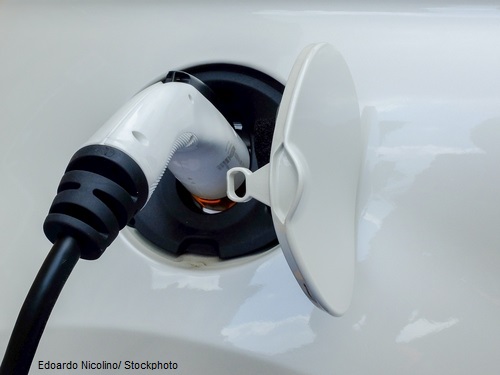
In addition, the government and the private sector are investing the equivalent of 760 million and 14.8 billion U.S. dollars, respectively, in battery research and development. Among other things, the investment aims to commercialize a battery made of NCM cells that will allow a range of 800 kilometers, as well as a solid-state battery, both by 2026. The private sector’s spending over the next eight years is estimated to be as much as US$23.1 billion.
Certifications for the Korean market are a complex hurdle and difficult to navigate due to different agencies and certification systems. With over 15 years of experience in the certification business, MPR International GmbH is your best resource for competent service when it comes to exporting to Korea. For example, KC Safety is relevant for electronics and household products mostly intended for consumers, as well as products for children and babies.
Feel free to contact us any time if you need assistance or have any questions regarding Korean certifications like KC, KC EMC, KCs, KCs for explosion safety products or KGS factory registration.
Tel. Europe: +49-69-271 37 69 261 Tel. US: +1 773 654-2673
Email: info@korea-certification.com
Urgent questions?Please do not hesitate to contact us via chat. You will find the chat window at the bottom right of each page (if this is not visible, please check your browser settings).
For more information you can download our free brochure “Korea Certification Made Easy – The Booklet“.
LG Electronics accelerates expansion of its logistics robotics division
South Korea’s LG Electronics, the world’s leading home appliance maker, is accelerating the expansion of its robotics applications in the so-called “smart logistics” sector with the CLOi Carry Bot autonomous robot. The tech giant announced in mid-October that it entered into a memorandum of understanding with local AI logistics specialist Fassto Corp. for the development and manufacturing of logistics robots. LG’s vice president Jang Ik-hwan said the collaboration aims to provide various robot services for the next generation in the logistics robot market. Logistics robots generally fall under the KCs certification, which they are required to have in order to be imported and operated in Korea.
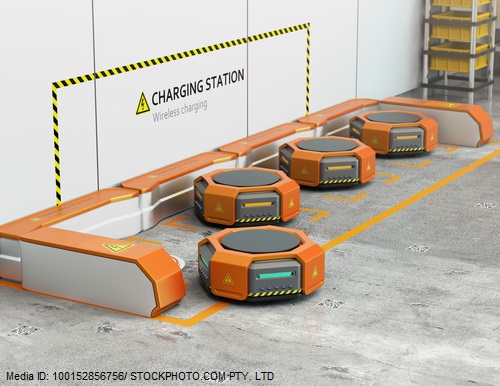
To this end, LG and Fassto will work on linking autonomous robots and logistics systems in the future. In addition, the processes in the respective logistics centers are to be optimized and the use of robots expanded. LG will contribute the corresponding robots to Fassto’s logistics centers and overseas distribution centers. LG’s self-driving CLOi Carry Bot can pick up loads, plan its own routes and take the payload to the desired location within the warehouse. LG said the robot can assist human workers with risky, simple or often repetitive tasks. In addition to the project with Fassto, LG plans to attract other customers for the CLOi Carry Bot. To that end, back in June, LG entered into an agreement with South Korea’s leading logistics company, CJ Logistics Corp. to jointly develop robots for sorting parcels. LG plans to deliver the CLOi Carry Bot to CJ Logistics and deploy it at its central distribution center.
KCs certification was introduced in South Korea to ensure basic safety in the design and manufacture of hazardous machinery and protective equipment in hazardous workplaces in Korea. The goal is to protect the health and safety of workers by preventing accidents. We provide certification services for all product areas, including KC certification for consumer products and especially electronics, KC-EMV certification for electronic products, and KCs certification for machinery, as well as KCs for explosion-proof products.
We are available to answer any questions you may have about Korea certifications.
Tel. Europe: +49-69-271 37 69 261 Tel. US: +1 773 654-2673
Email: info@korea-certification.com
For more information you can download our free brochure “Korea Certification Made Easy – The Booklet“.



